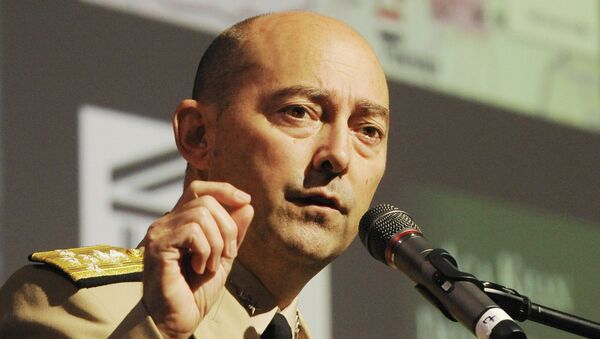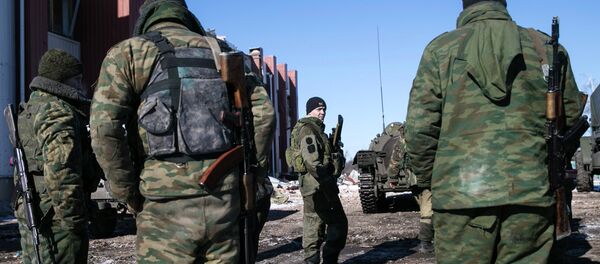WASHINGTON (Sputnik) — The ceasefire in Ukraine is unlikely to hold and the situation in eastern Ukraine could become another frozen conflict, the former head of the US European Command and former NATO Supreme Allied Commander James Stavridis told Sputnik.
“My prediction, unfortunately, is that we are headed toward yet another ‘Frozen Conflict,’ similar to Georgia-South Ossetia-Abkhazia, Moldova-Transnistria, Cyprus, and Nagorno-Karabakh — hopefully we can devise a situation wherein diplomacy can be in the lead over violence,” Stavridis said on Tuesday.
Last Thursday, the leaders of France, Germany, Russia and Ukraine reached a deal in the Belarusian capital of Minsk to implement a ceasefire in eastern Ukraine that aims to pave the way for a political settlement.
Nearly three days since the ceasefire, the OSCE reported the ceasefire has been “adhered to despite some incidents” in Sievierodonetsk, Luhansk, Debaltseve and Donetsk. Fighting is intense around the surrounded strategic railroad city of Debaltseve, the OSCE said.
Stavridis explained that the tactical situation in Debaltseve, where nearly 7,000 Ukrainian troops are surrounded, is a problem.
“They [Ukrainian forces] must be permitted to remain unmolested in place, as the ceasefire calls for – but the Kremlin will push for their capture or retreat. I find it highly unlikely the ceasefire will hold, and unfortunately we are in for more bloodshed in the time ahead,” Stavridis said.
The burden to implement the ceasefire and reach a resolution in Ukraine falls largely on Russia and the independence supporters in eastern Ukraine, the former NATO commander said.
“NATO has provided irrefutable evidence for months of the presence of Russian heavy weapons systems. Russia can withdraw its forces, trainers, and heavy equipment and should do so immediately,” he added, saying that as long as Russian forces are present in Ukraine the chances for a peaceful and diplomatic settlement are low.
Despite the disagreements with Russia, the West is not in a Cold War posture, and there will be no military confrontation between NATO and Russia, Stavridis said.
“But we will need every bit of our diplomatic skills, tough and unified sanctions, reassurance to other European nations that could be targets — notably the Baltics — and support to Ukraine in this crisis. Above all, we have to keep the communications and interaction with the Kremlin open so that a miscalculation of some kind does not ratchet up the situation to an even worse level,” Stavridis concluded.
An earlier ceasefire agreement signed in Minsk in September broke down as fighting erupted between government forces and independence supporters, who expanded areas under their control. More than 5,300 people have been killed in nearly 9 months of fighting in eastern Ukraine, according to the United Nations.






